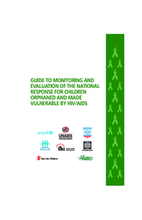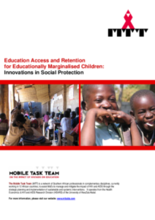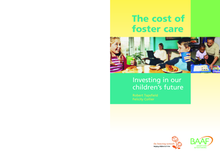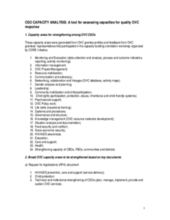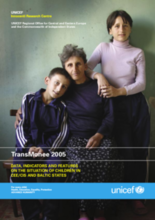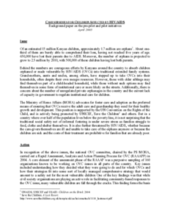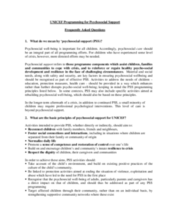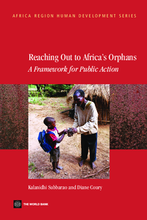Displaying 481 - 490 of 550
Guidance on establishing a national monitoring and evaluation process to track a country’s response to children orphaned and made vulnerable by HIV and AIDS. It includes methods and tools for measurement, and recommends a set of core indicators to record national status and changes.
This paper provides a comprehensive contextual overview of the educational challenges faced by orphans and vulnerable children in sub-Saharan Africa. It includes recommendations for future education policy in the context of HIV and AIDS, as well as provides country specific data on current policies and social protection programs.
This report assesses the expenditure which is required to transform foster care services across the UK, in order to give children in public care the same opportunities to have a successful future as other children. Contains relevant statistics and social welfare system reform recommendations.
This document provides a tool that was used to assess broad capacity areas for quality OVC response in Uganda.
This report examines the social and economic trends and challenges affecting children in CEE/CIS and the Baltic States. Social orphanhood, maternal and infant mortality rates, deaths from accidents and injuries, infectious disease, and low public health expenditures are addressed.
The first situational analysis of children orphaned or made vulnerable by HIV/AIDS in Liberia that provides baseline information for developing national planning processes for OVCs.
Outlines the impact of a pre-pilot conditional cash transfer scheme implemented in Kenya and defines key issues to be considered before moving forward into pilot and national schemes. Short annexes include tools/frameworks to guide implementation.
Helpful resource for defining key terms, issues, and practices in psychosocial support. Contains a short list of recommended tools for support and monitoring of psychosocial support interventions.
Evaluation of the Bolsa Escola Program, which was a Brazilian social services program that provided cash transfers to families provided that their school-aged children would be enrolled in and attending school. Examines how beneficiaries were selected, registered, and monitored. Cites inconsistencies in implementation and roles of municipal governments as significant finding.
A detailed book providing evidence-based guidelines for approaches and interventions to best mitigate the various risks confronted by OVC.

